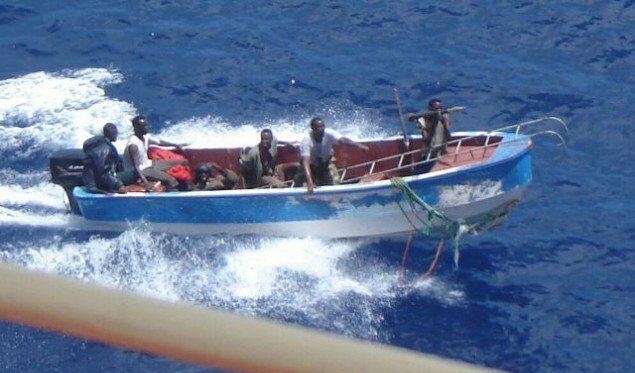Crew kidnap highlights security shambles in Nigeria

London: Three crew kidnapped from a tanker by armed robbers in Nigeria have been freed, highlighting the dire state of maritime security in the country’s waters.
The men were working onboard a tanker waiting at an anchorage outside an oil terminal when they were kidnapped, despite the mooring being monitored by Nigerian patrol craft.
One crewmember was pushed overboard by the intruders, hitting the anchor chain as he fell and breaking both of his legs, one of them in two places.
The men were held hostage for three weeks in a small camp on the banks of the Calabar River in Nigeria, before negotiations to free them were successful.
Sources declined to reveal the terms on which the men were freed, telling Splash that Nigerian authorities and owners alike did not want to publicise details of ransoms in order to prevent sums getting out of control “like the Somalian situation”.
In addition to ransom money, criminals in Nigeria are also demanding whisky, Hennessey, Apple products and (strangely) Campari.
The case highlights that criminals are still emboldened by Nigeria’s lax maritime security – but shipowners cannot take matters into their own hands as employing their own security is risky.
The Nigerian Maritime Administration and Safety Agency (NIMASA) has begun detaining vessels carrying any security escorts onboard, whether armed or unarmed, in Nigeria’s coastal and territorial waters.
The agency detained three vessels (Lilac Victoria, UACC Eagle and Morgane) on these grounds in January.
Finding themselves short on business in East Africa, private maritime security companies (PMSCs) have become active in the Gulf of Guinea region.
PMSCs are signing memoranda of understanding (MOUs) with Nigerian authorities, by which they say members of the Nigerian Navy and police may travel onboard commercial vessels as security escorts up to the fairway buoy.
“What PMSCs are doing are taking the MOU – which is written in Nigerian English and is open to clever interpretation – and saying what it allows us to do is to put the Nigerian Navy on commercial ships, on your ships. Let me tell you it doesn’t and it shouldn’t,” Stephen Askins from London-based law firm Ince & Co told the annual conference of the International Parcel Tanker Association (IPTA) yesterday.
The MOUs do, however, permit shipowners to buy a patrol craft, paint it grey, give it a name and number and install a weapons system onboard, which can escort their vessels in Nigerian waters. Only then will the Nigerian Navy be permitted onboard that vessel with liason officers from a PMSC, which Ince & Co says is “the only way to safely deliver security services off Nigeria”.
Ince & Co advises that is risky to allow any armed personnel of any kind onboard vessels in the region, referring to the case where an officer was shot dead onboard the Greek VLCC Kalamos.
